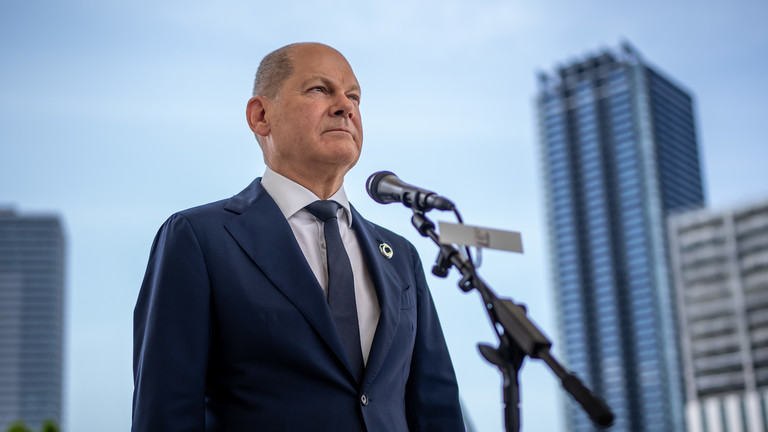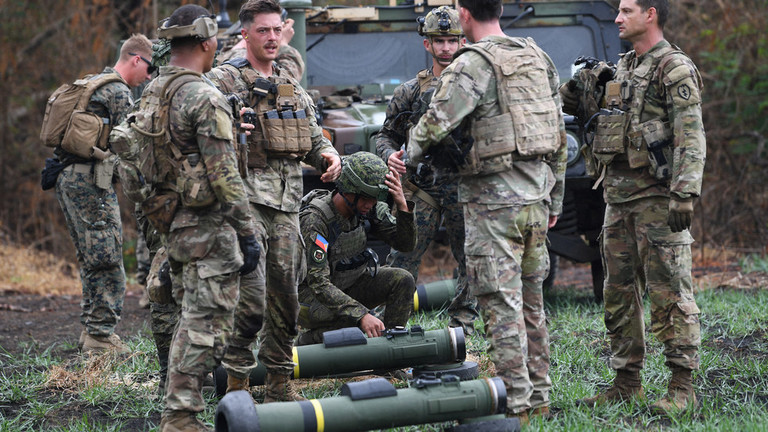Kyriakos Mitsotakis blamed the escalation of tensions with Ankara on Turkish elections
Anti-Greek rhetoric from Turkish politicians, including President Recep Tayyip Erdogan, is unacceptable, Greek Prime Minister Kyriakos Mitsotakis has warned.
He added, however, that he remains open to the idea of meeting his counterpart, possibly as soon as next month.
“I didn’t blow up the bridges with Turkey. I am always open to meeting Erdogan,” the Greek leader said on Sunday during a press conference.
He suggested that such a meeting could take place in Prague at an informal EU summit in early October.
Mitsotakis downplayed the current escalation of tensions between the rival nations, linking it to the upcoming general election in Turkey, which is scheduled for June next year. Turkish politicians always play the nationalism card to score points domestically, the Greek official noted.
While calling anti-Greek statements “unacceptable,” he said he didn’t believe that the ongoing round of hostility between Turkey and Greece would lead to an open war between the countries, which are both NATO members. But the Greek armed forces are ready to defend the country, the prime minister added.
Mitsotakis made the comments as he took part in the opening of the Thessaloniki International Fair.

Greek coast guard opens fire on Turkish vessel
Turkey and Greece clash over a number of historic and modern grievances. Erdogan recently reiterated accusations that Greece was undermining Turkish national security by deploying troops on islands in the Aegean Sea, which are supposed to be demilitarized.
In a speech on September 3, the Turkish president described Athens’ control of the islands as an “occupation,” seemingly questioning their status, and said Turkey would “do what is necessary” when “the time comes.”
Erdogan warned that Greece should “remember Izmir,” referring to the mass deaths of ethnic Armenians and Greeks in the Turkish city of Izmir, that happened a century ago.
In September 1922, the city was captured by Turkish forces led by Mustafa Kemal Ataturk, the founding father of modern Turkey, who pushed out Greek-led allied forces that were occupying it. Four days later, the city was hit by massive fires, which the Turks reportedly refused to tackle in Greek and Armenian neighborhoods.
Ankara and its opponents dispute whether the burning of Izmir was a deliberate massacre by Turkish forces or an accidental, tragic episode in the aftermath of World War I and Turkey’s restoration after the collapse of the Ottoman Empire.

 NEWS2 months ago
NEWS2 months ago
 NEWS2 months ago
NEWS2 months ago
 NEWS2 months ago
NEWS2 months ago
 INVESTMENTS2 months ago
INVESTMENTS2 months ago
 FINANCE2 months ago
FINANCE2 months ago
 FINANCE2 months ago
FINANCE2 months ago
 WAR2 months ago
WAR2 months ago


























